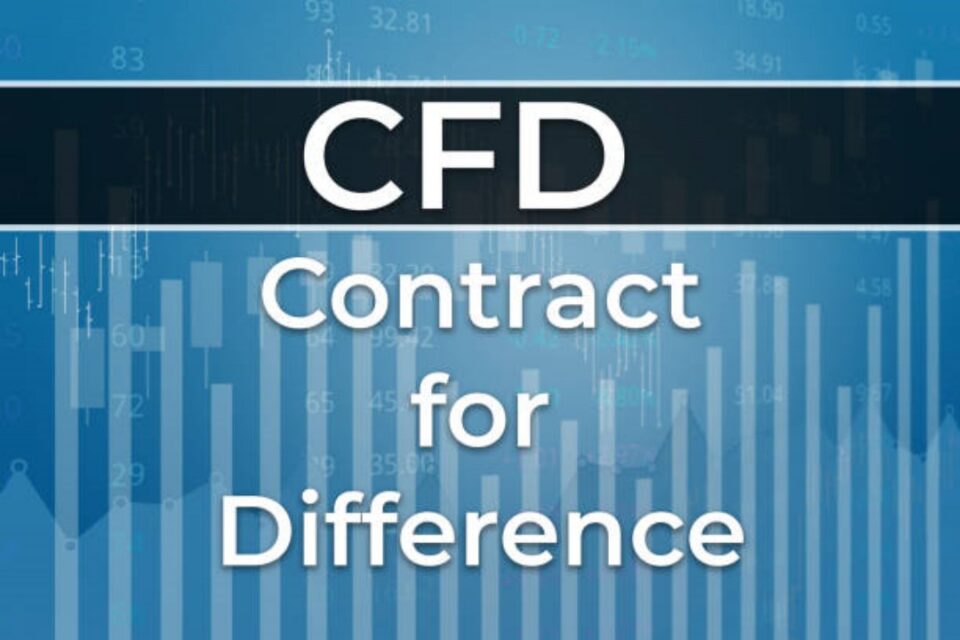The United Arab Emirates (UAE) has been a hub for financial innovation and investment opportunities, attracting investors from around the globe. One of the fastest-growing financial instruments in the region is Contract for Difference (CFD) trading. This form of trading allows investors to speculate on the price movement of various financial instruments without actually owning the underlying asset. In this comprehensive analysis, we will delve into the intricacies of CFD trading in the UAE, examining the market dynamics, regulatory environment, and the role of CFD trading platforms in facilitating this financial activity.
Market Dynamics of CFD Trading in the UAE
The UAE’s financial market has been experiencing a surge in interest from both local and international investors. The region’s economic stability, coupled with its strategic location, has positioned it as a gateway to the Middle East and North African markets. This has led to a significant increase in the demand for financial instruments that offer high returns and flexibility, such as CFD trading.
CFD trading allows investors to take advantage of price movements in a wide range of assets, including stocks, indices, commodities, and currencies. The UAE’s diverse economy, with its strong presence in oil and gas, real estate, and technology sectors, provides a rich pool of tradable assets for CFD traders. This diversity is a key factor contributing to the growth of the CFD market in the region.
Regulatory Environment for CFD Trading
The regulatory framework for financial services in the UAE is robust and well-established. The Securities and Commodities Authority (SCA) is the primary regulatory body overseeing the financial markets, including CFD trading. The SCA ensures that all financial services providers adhere to strict guidelines to protect investors and maintain market integrity.
In addition to the SCA, the UAE has also been proactive in adopting international best practices and standards. The country is a member of the International Organization of Securities Commissions (IOSCO), which promotes high standards of regulation in the global securities markets. This commitment to international standards has further bolstered investor confidence in the UAE’s financial markets.
The Role of CFD Trading Platforms
A crucial component of the CFD trading ecosystem is the CFD trading platform (In Taiwan, it is called “差價合約交易平台“). These platforms provide investors with the tools and resources necessary to execute trades efficiently and effectively. They offer a user-friendly interface, allowing investors to monitor market movements, place trades, and manage their portfolios with ease.
Several international and local companies have established their presence in the UAE, offering state-of-the-art CFD trading platforms. These platforms are designed to cater to the needs of both novice and experienced traders, offering a range of features such as advanced charting tools, customizable trading indicators, and real-time market analysis.
One of the key benefits of CFD trading platforms is their ability to provide access to global markets. Investors in the UAE can now trade on the same platforms used by traders in London, New York, and other major financial centers. This level of access has democratized trading, allowing investors from the region to participate in global market movements and capitalize on opportunities across different asset classes.
Risk Management in CFD Trading
While CFD trading offers significant potential for high returns, it also comes with a higher level of risk compared to traditional investment methods. The use of leverage, which is a common feature in CFD trading, can amplify both gains and losses. Therefore, effective risk management is crucial for traders in the UAE.
CFD trading platforms often include features that help traders manage their risk exposure. These may include stop-loss orders, which automatically close a trade if the market moves against the trader’s position, limiting potential losses. Additionally, some platforms offer risk management tools that allow traders to set daily or monthly loss limits, further mitigating the risk of significant financial losses.
Education and Support for CFD Traders
As the popularity of CFD trading grows in the UAE, so does the demand for education and support services. Many CFD trading platforms offer educational resources, such as webinars, tutorials, and market analysis reports, to help traders develop their skills and understanding of the market.
In addition to educational resources, many platforms also provide customer support services. These can range from live chat support to dedicated account managers who can offer personalized advice and guidance. This level of support is particularly important for new traders who may be unfamiliar with the complexities of CFD trading.
The Future of CFD Trading in the UAE
The future of CFD trading in the UAE looks promising, with continued growth expected in the coming years. As the region’s financial markets continue to mature and attract more investors, the demand for innovative financial instruments like CFDs is likely to increase.
Regulatory bodies, such as the SCA, will play a crucial role in ensuring that the market remains stable and investor-friendly. By maintaining a strong regulatory framework, the UAE can continue to position itself as a leading financial hub in the region.
In conclusion, CFD trading has become an integral part of the UAE’s financial landscape, offering investors a flexible and potentially lucrative way to participate in global markets. With the right tools, education, and support, traders in the UAE can capitalize on the opportunities presented by CFD trading while effectively managing the associated risks.

